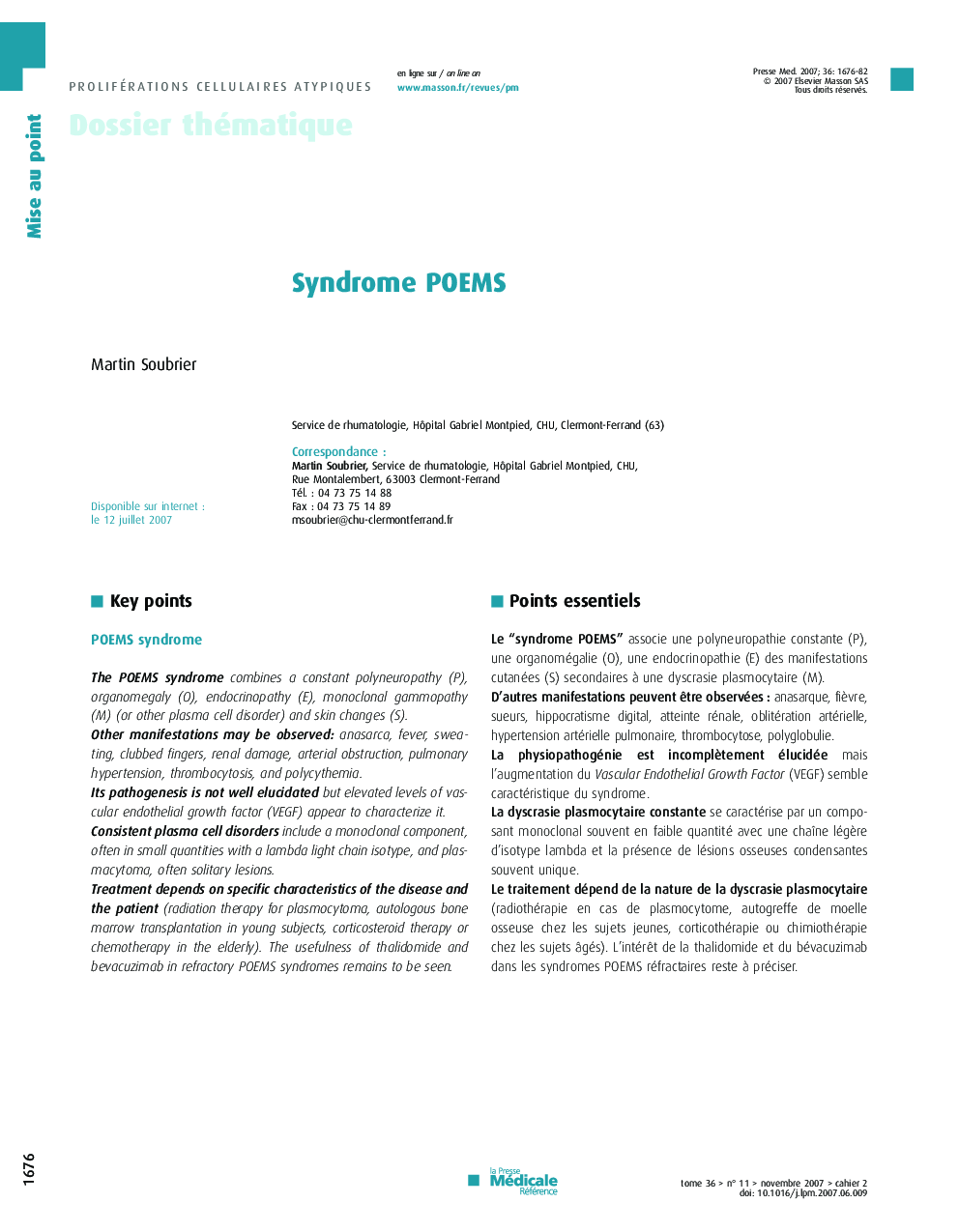| Article ID | Journal | Published Year | Pages | File Type |
|---|---|---|---|---|
| 3820053 | La Presse Médicale | 2007 | 7 Pages |
Key pointsThe POEMS syndrome combines a constant polyneuropathy (P), organomegaly (O), endocrinopathy (E), monoclonal gammopathy (M) (or other plasma cell disorder) and skin changes (S).Other manifestations may be observed: anasarca, fever, sweating, clubbed fingers, renal damage, arterial obstruction, pulmonary hypertension, thrombocytosis, and polycythemia.Its pathogenesis is not well elucidated but elevated levels of vascular endothelial growth factor (VEGF) appear to characterize it.Consistent plasma cell disorders include a monoclonal component, often in small quantities with a lambda light chain isotype, and plasmacytoma, often solitary lesions.Treatment depends on specific characteristics of the disease and the patient (radiation therapy for plasmocytoma, autologous bone marrow transplantation in young subjects, corticosteroid therapy or chemotherapy in the elderly). The usefulness of thalidomide and bevacuzimab in refractory POEMS syndromes remains to be seen.
Points essentielsLe “syndrome POEMS” associe une polyneuropathie constante (P), une organomégalie (O), une endocrinopathie (E) des manifestations cutanées (S) secondaires à une dyscrasie plasmocytaire (M).D'autres manifestations peuvent être observées : anasarque, fièvre, sueurs, hippocratisme digital, atteinte rénale, oblitération artérielle, hypertension artérielle pulmonaire, thrombocytose, polyglobulie.La physiopathogénie est incomplètement élucidée mais l'augmentation du Vascular Endothelial Growth Factor (VEGF) semble caractéristique du syndrome.La dyscrasie plasmocytaire constante se caractérise par un composant monoclonal souvent en faible quantité avec une chaîne légère d'isotype lambda et la présence de lésions osseuses condensantes souvent unique.Le traitement dépend de la nature de la dyscrasie plasmocytaire (radiothérapie en cas de plasmocytome, autogreffe de moelle osseuse chez les sujets jeunes, corticothérapie ou chimiothérapie chez les sujets âgés). L'intérêt de la thalidomide et du bévacuzimab dans les syndromes POEMS réfractaires reste à préciser.
